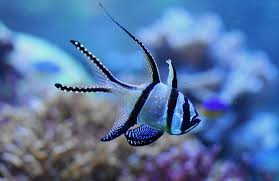Exploring Dragons and Folk Beliefs of the Chinese People Across Generations

Dragons are an iconic symbol in Chinese culture, deeply embedded in its folklore, religion, and traditions. These mythical creatures have been revered and celebrated in Chinese society for thousands of years. The role of dragons extends far beyond the realm of fantasy, as they are considered powerful symbols that represent the forces of nature, fortune, and harmony. Through generations, dragons have been an integral part of Chinese folk beliefs, shaping customs, rituals, and the way people interact with the world around them. This article delves into the significance of dragons in Chinese folk beliefs across generations, examining how these beliefs have evolved and continue to influence the cultural practices of the Chinese people today.
The Mythical Origins of Dragons in Chinese Folklore
To understand the significance of dragons in Chinese culture, it is essential to first explore their origins in Chinese mythology. The Chinese dragon is known as Long (龙), a benevolent and auspicious creature that embodies strength, power, and protection. Unlike the fearsome dragons of Western mythology, which are often depicted as destructive and malevolent, the Chinese dragon is revered for its wisdom, protection, and ability to bring good fortune.
The origins of the dragon in Chinese mythology are not entirely clear, but it is believed that the dragon’s concept emerged from various ancient beliefs. Some scholars suggest that the dragon was a composite of various animals, including snakes, fish, tigers, and birds. This combination of different creatures symbolized the power of nature and its control over the elements. The dragon is often associated with water, rain, and rivers, believed to have the ability to summon rain for the crops and to control floods, an essential element for the agricultural society that thrived in ancient China.
Dragons and the Concept of Power in Chinese Folk Beliefs
In Chinese folk beliefs, dragons are seen as the ultimate symbols of power, with the ability to influence both the heavens and the earth. This belief is tied to the ancient Chinese view of the cosmos, where dragons were thought to be intermediaries between humans and the gods. The belief that the dragon had divine authority and a connection to the emperor was widespread. In fact, the emperor was often referred to as the “Son of Heaven,” with the dragon being his primary symbol.
The dragon’s connection to the emperor is exemplified in its appearance on imperial regalia, architecture, and even in the emperor’s robes. The emperor was often seen as the earthly manifestation of the dragon, imbued with divine power to rule over the people. As a symbol of imperial authority, the dragon played a critical role in reinforcing the legitimacy of the ruler’s reign, as it was believed that the emperor’s connection to the dragon guaranteed peace and prosperity for the empire.
However, dragons were not just symbols of imperial power; they were also revered by the common people for their ability to bring blessings. In folk beliefs, the dragon was seen as a protective figure, capable of warding off evil spirits, natural disasters, and bad fortune. Dragons were often invoked in rituals and prayers to ensure good harvests, favorable weather conditions, and protection from misfortune.
The Role of Dragons in Folk Rituals and Festivals
Dragons play a significant role in Chinese folk rituals and festivals. The most well-known festival involving dragons is the Dragon Boat Festival (端午节), which is celebrated on the 5th day of the 5th month in the Chinese lunar calendar. The festival is deeply rooted in ancient traditions and is believed to have originated as a way to honor the dragon and protect the community from disease and disaster.
The Dragon Boat Festival is celebrated with dragon boat races, in which teams of rowers race in long, narrow boats decorated like dragons. The boats are believed to symbolize the dragon’s power and protection. The festival also involves the consumption of zongzi, a traditional rice dumpling wrapped in bamboo leaves, which was originally offered to the dragon to ensure a good harvest. During the festival, the people believe that the dragon’s power is especially potent, and the race serves as a way to honor the dragon and seek its protection.
In addition to the Dragon Boat Festival, dragons are also invoked in various folk rituals throughout the year. In rural areas, people often conduct dragon-related ceremonies to pray for rain or to ensure a successful harvest. In these rituals, offerings are made to the dragon, including incense, fruits, and other symbolic gifts. The belief that the dragon controls the forces of nature and can bring prosperity is deeply ingrained in the lives of many people, particularly in farming communities.
Dragons and Feng Shui: Balancing Energies in the Environment
The concept of Feng Shui, an ancient Chinese practice of harmonizing individuals with their environment, also incorporates dragons in its principles. According to Feng Shui, the dragon is a symbol of auspicious energy and a powerful force that can bring wealth, health, and happiness to a household or business. Dragons are often depicted in Feng Shui as a force that can enhance the flow of Chi (Qi), the vital life energy that is believed to circulate through the universe.
In Feng Shui, the dragon is associated with the Yang energy, which is considered active, masculine, and energetic. The dragon’s role in balancing the energies of a space is significant, as it is believed that the dragon can drive away negative influences and invite positive ones. Many homes and businesses display images or statues of dragons to invoke their power and ensure prosperity. The positioning of the dragon’s image in the home or office is carefully considered, as certain locations are thought to enhance the dragon’s ability to bring good fortune.
For instance, placing a dragon in the eastern part of the house is believed to promote good health and vitality, while placing it in the southwestern part is said to bring success in love and relationships. The dragon’s presence in Feng Shui is not just decorative; it is an essential part of creating an environment that fosters balance and positive energy.
Dragons in the Context of Local Folk Beliefs
In addition to their role in national and imperial symbolism, dragons also hold particular significance in local folk beliefs across China. Different regions have unique dragon legends that reflect the local customs, beliefs, and relationships with nature. For example, in southern China, the Lingnan Dragon is believed to live in the waters of the Pearl River, where it is said to protect the region from floods and storms. In northern China, particularly in the Shandong region, the dragon is associated with agricultural prosperity, and people believe that offering sacrifices to the dragon during planting season ensures a bountiful harvest.
In some areas, dragons are considered guardians of specific geographical locations, such as mountains, rivers, and villages. Local temples dedicated to dragon gods can be found throughout China, where people continue to worship these deities for protection and blessings. In these local communities, dragon-related rituals and customs are passed down from generation to generation, continuing to shape the beliefs and practices of the people.
The Changing Role of Dragons in Modern Chinese Culture
While dragons remain a significant part of traditional Chinese folk beliefs, their role has evolved in the modern era. In contemporary China, the dragon is still widely celebrated, particularly during traditional festivals such as the Chinese New Year, where dragon dances and dragon-related imagery are common. However, the significance of the dragon has shifted somewhat as China has undergone rapid modernization and urbanization.
In modern Chinese society, the dragon is still viewed as a symbol of strength, power, and prosperity, but it is no longer as closely tied to the agrarian lifestyle or the same rural folk practices. Nonetheless, the dragon continues to appear in popular culture, art, and advertising, often used to evoke a sense of national pride and unity. The Chinese dragon has become an emblem of the country’s historical heritage and its cultural identity on the global stage.
Conclusion: The Enduring Power of the Dragon in Chinese Folk Beliefs
Dragons have been central to Chinese folk beliefs for thousands of years, playing a role in shaping the country’s culture, rituals, and worldview. From their origins in ancient mythology to their continued presence in modern traditions, dragons represent power, protection, and prosperity. Through generations, the dragon has evolved in its role, adapting to the changing needs and values of Chinese society, but its symbolic importance remains undiminished.
In Chinese folk beliefs, the dragon serves as a bridge between the natural and spiritual worlds, connecting people to the divine and ensuring harmony between the heavens, earth, and human society. Whether in rituals, festivals, or daily life, the dragon continues to embody the deep connection between the Chinese people and the forces of nature, standing as a testament to the enduring power and significance of this mythical creature. The dragon’s presence in Chinese culture, both ancient and modern, serves as a powerful reminder of the wisdom, strength, and resilience that define the spirit of the Chinese people across generations.


